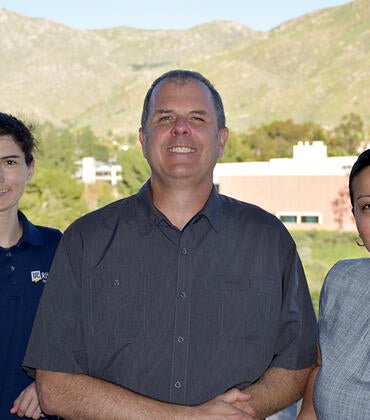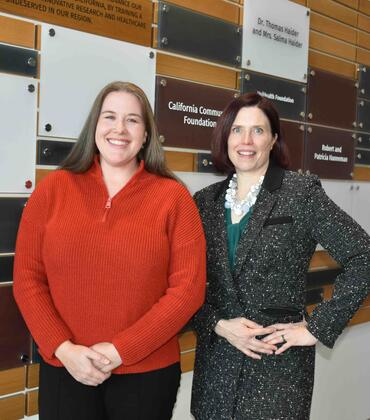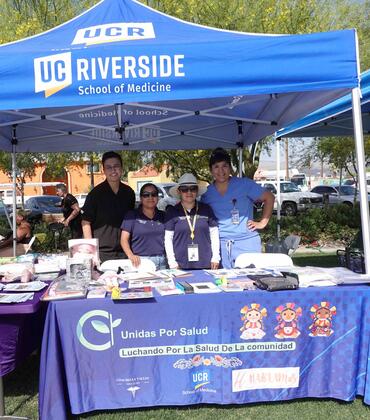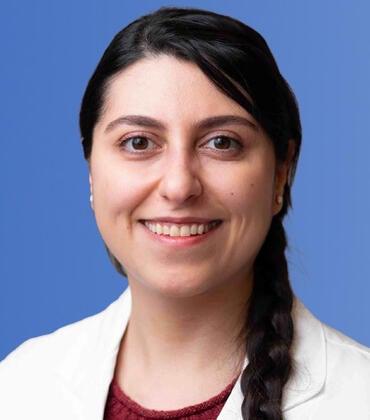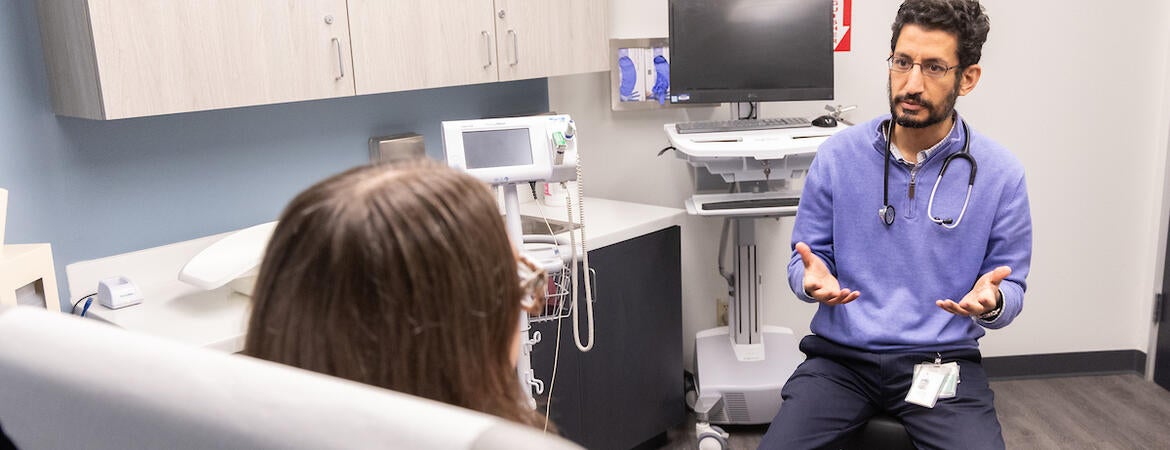
Everything in your life may be going well, but sometimes, it can still all fall apart. One patient with eye pain recently visited the UCR Health Community Clinic , a clinic intended to serve the local unhoused population. During the appointment, he shared his experience with Moazzum Bajwa, MD, MPH, an associate clinical professor of health sciences at the UC Riverside School of Medicine and a physician at Hulen Place. From using stimulants to cope with years of living in poverty, to being hospitalized for resulting heart disease, then getting his substance use under control, he had finally found temporary housing in a shelter but was still dealing with the damage to his heart.
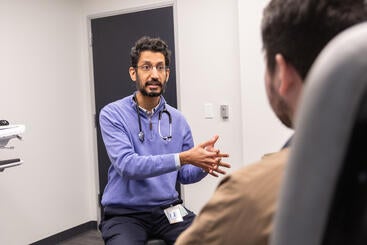
“As somebody who at one point felt like he had everything together, he told me about how one thing led to another and snowballed,” said Bajwa, noting that he and his patient were nearly the same age. “It really hit home, the realization of knowing how we’re all just one bad day away from being on the streets.”
The clinic reopened in September 2023 under the management of the UCR School of Medicine and UCR Health with support from a grant from the UniHealth Foundation. Its mission is to provide primary care and referrals for specialty care to the unhoused population in Riverside County. Previously run by organizations that have since closed, the clinic is open on Tuesdays and Thursdays for appointments and walk-ins.
The number of homeless individuals in Riverside County increased by 15% in 2022 and another 12% in 2023, demonstrating the need for health services for this population. In 2023, the county’s unhoused population numbered over 3,700 people. “Anyone who’s spent time in Riverside in the last 10 years can see that there's been a dramatic increase in the number of folks who are living in tent encampments or on the streets,” said Bajwa. “Those folks typically have the worst access to health services even though they often need it the most.”
A commitment to helping the homeless
Bajwa, who has helped provide medical care to unhoused individuals for six years through street medicine programs affiliated with the UCR SOM, noted that he already sees many people in the cycle of homelessness at the Riverside University Health System (RUHS) Moreno Valley Community Health Center. This includes not only people living on the street or in shelters, but those working while living in their cars or on a friend’s couch without access to stable housing.
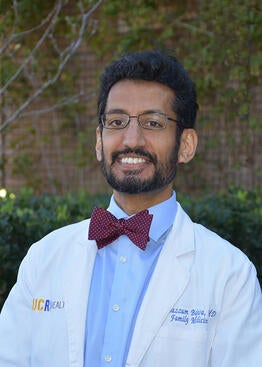
Even for Bajwa, though, caring for patients at Hulen Place has been a surprise. “It's been shocking at the Hulen Place clinic just to see how many more folks are dealing with that than I ever imagined,” he said.
Unhoused people need medical care too, and Bajwa said that Hulen Place exists as a stopgap to provide it. He added that beyond those working at the clinic, leadership like Timothy Collins, EdD, CEO of UCR Health, also supports the clinic’s mission.
Like Bajwa, Collins noted that anyone may find themselves experiencing homelessness, and that it’s essential to care for people in that situation. “Making an impact on the lives of others who are in need and providing care and support to assist them in improving their health and welfare is critical to UCR Health’s mission,” Collins said. “We need to be there for those individuals.”
An early encounter with a patient stood out to Collins and has informed his approach to running the clinic. When he asked a patient at the clinic for her feedback, she emphasized one word: kindness. “She stated, ‘Understand that we're different and that our needs are not going to be ‘cookie cutter,’ so you're going to have to do things a little differently because we don't initially trust,’” Collins said. “That was a story that has stuck with me about listening, being kind, doing things that are a little bit different, taking some calculated risks, but just being able to be reflective of what people need and how they live their lives.”
With this advice in mind, Collins said the clinic is focusing on listening closely to patients to address their needs and moving at a pace that allows clinic operations to adapt. “It sounds weird saying it, but we don't want to go too fast; we don't want to cookie cutter it,” he said. “We can't lag, but we want to be reflective of what this population needs.”
Unique challenges and targeted solutions
Serving unhoused populations has many challenges, but Hulen Place focuses on effective solutions.
In every medical establishment, physicians must be prepared to handle any type of medical condition. Yet at the clinic, Bajwa said patients’ issues tend to be even more complex because they may have been in the cycle of incarceration or have lacked access to medical care for years. “We really have to be on top of our game, and I credit the team at the Hulen Place clinic for always being ready for anyone that comes in the door,” Bajwa said.
Another issue may seem obvious in the unhoused population, but complicates the process of providing medical care. “It's shocking how much of a barrier it can be for people to not be able to get the care that they need because they don't have a physical street address, or because they don't have regular cell phone service,” said Bajwa.
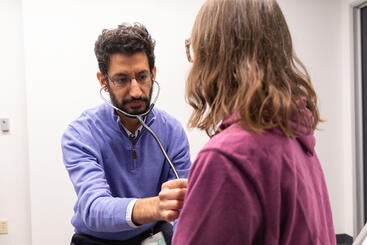
For instance, lab tests reveal important information for diagnosing health issues, yet if they’re done offsite, it may be challenging to reestablish contact with an unhoused patient. To address this issue, Hulen Place added an onsite lab capable of providing immediate results.
“It costs us a bit more money to do that, but it's better for the patient because we're able to give real-time results and make a referral if we need to,” said Collins. “If we'd done things like we had always done them, we probably wouldn't be as adaptive to the needs of the population.”
In another case involving a patient with advanced cancer, his lack of a fixed address prevented him from getting an appointment with an oncologist until he came to the clinic. It worked with the city of Riverside, RUHS Behavioral Health, and the UCR Center for Healthy Communities to get the patient into long-term housing and cancer treatments. “That was a huge victory and one of the early success stories from the coordination of care that can happen here,” Bajwa said.
In fact, one advantage of the clinic is its location near several social service agencies and temporary housing, including Path of Life Ministries Community Shelter and Helping Hearts Hulen. These organizations benefit from being able to refer individuals in need of health services to the clinic. “In talking to the leadership of those organizations, them knowing that they have a reliable medical home that they can send their clients to is a huge boost because it cuts out the need to follow up with one specific clinic that may or may not accept the patient's medical coverage,” said Bajwa. In turn, the clinic can work with these agencies to effectively provide medical services for patients without trying to offer too many additional services on its own.
Collins said this issue may have impacted past clinics at the same location. “We knew that going in, we had to do things differently,” he said. “Our desire was to listen and learn about what's going on and be reflective about what services made sense and what didn't make sense.”
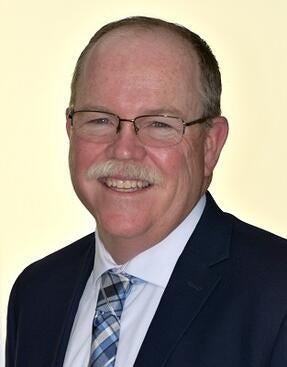
As part of the goal to listen to patients and address their concerns, physicians spend more time with patients at Hulen Place than they would in typical medical environments, where appointments often last just a few minutes.
"We get to know the patients a little bit better and let them explain their story and see how they got where they are, so we can better find how to help them,” said Marc Debay, MD, MPH, PhD, a professor of health sciences in the UCR Family Medicine Department who now sees patients two days a week at the clinic. Debay has been involved in caring for the homeless in the Inland Empire since 2011 and brings insights from his experience working with underserved populations in over 30 low- and middle-income countries around the world.
The deliberate, community-focused approach has helped the clinic see success. For instance, Collins said that adding a behavioral health provider would have been an ineffective use of resources when the clinic first opened because the provider would have had few patients. “Some of these individuals have lived with their behavioral health issues for so long that they don't realize they're behavioral health issues, so it takes a primary care physician to realize and refer them to a behavioral health practitioner,” Collins explained. Now that the clinic’s primary care physicians have identified the need in the community, behavioral health will be added this spring.
The clinic has also adapted to another surprise: the high number of unhoused patients with medical insurance. While insurance isn’t a requirement for treatment, a full 84% of visiting patients have it. Some weren’t even aware they had the insurance, according to Collins.
For the 20% of patients with insurance and a primary care provider, Hulen Place provides urgent care services when they’re unable to get an appointment with their primary care doctor. If patients have insurance but no primary care physician, or don’t know how to contact their assigned provider, the clinic provides primary care appointments. Finally, when patients don’t have insurance but are eligible, or their insurance has lapsed, clinic staff works with the surrounding organizations to help them sign up for insurance or get them qualified for MediCal.
An education in homelessness
Besides serving unhoused patients, the clinic also provides an opportunity for UC Riverside medical students to directly help homeless individuals while gaining a better understanding of the needs of this population.
Many undergraduate and medical students are interested in bringing care to unhoused individuals through street medicine initiatives, some of which have been led by Debay.
“There is no better way to understand the drama of homelessness than reaching and being able to care for someone suffering from treatable conditions and staying in a plastic sheet tent full of trash,” said Debay. “With appropriate skills and care, one can bring that person to a welcoming and safe facility like the Hulen Place clinic if needed.” Debay added, “Working in a clinic like Hulen Place may give medical students a better understanding of the medical and other issues that homeless persons face, which they can then take with them when working in street medicine.”
Hawkins Sellier, a first-year student at the SOM, works with Debay treating patients at the clinic. A former emergency medical technician (EMT), he recalled seeing the results of untreated medical issues among the unhoused population, leading him to volunteer at the clinic. “These people had been let down at so many different points in their lives to arrive at the day where they needed an ambulance,” said Sellier. “I see it as an opportunity to proactively care for these patients and prevent some of the conditions that I saw while working in EMS.”
Similarly to Bajwa, he met a patient close to his age who formerly worked in healthcare, like he does. “It was sobering to see someone who was on the same path as me who is now homeless,” Sellier said. “We all like to think it could never be us in that tent, in that shelter, in that ER bed, but this patient was a person who anyone would have considered a ‘functioning member of society.’”
Improving patients’ lives
Six months since the clinic opened, the clinic has provided over 300 patient visits serving nearly 100 patients--meaning that many come back for multiple appointments.
For Bajwa, these return visits are the most rewarding. He welcomes patients who use it as their primary care home, and has had some patients leave nearby shelters yet request to continue seeing their primary care doctors at the clinic. “Personally the best feedback I could ever get is knowing that the patients feel safe, that they can trust us, and that they want to come back to us even as they get back on their feet,” said Bajwa.
It is also helping relieve pressure for local emergency services. “If you ask anyone who works in an emergency department, they'll tell you just how challenging it is to address primary or urgent care type issues for patients who are experiencing homelessness in the middle of their shift of triaging patients who are unstable or dying,” Bajwa said.
“Helping here has made me hopeful,” Sellier said, noting that the clinic's staffing, supplies, and connections to other organizations help make it effective. “It's a vital piece in the complicated puzzle that is the effort to address the homelessness crisis,” he added.
Future goals
Collins envisions securing the funding to serve patients five days a week and hopes to add rotations for residents to work with physicians and help the homeless population.
He also plans to leverage the clinic’s work in the community to conduct research and identify innovative solutions to barriers facing the unhoused population. This may include, for example, making appointment scheduling fully accessible through mobile devices that many homeless individuals carry and finding new ways to address gaps in care.
Collins compared the problems to “chipping away at an iceberg” but is prepared to continue working to address the issues, even when solutions may not be lucrative.
“It's not all about making money; it's about improving the healthcare in the community,” Collins said. “We are the University of California, so our goals are a healthier community overall, and we believe that we can move the needle on that.”
For Bajwa and Debay, it’s most important to continue building trust with the unhoused community to bring in new patients while providing a sustainable, long-term healthcare solution. While addressing the issue of homelessness can feel overwhelming, Bajwa said that seeing small victories with patients motivates him to continue doing the work.
“There's a tendency to treat people in the cycle of homelessness as a monolith, whether that's in the words we use or the policies we develop,” said Bajwa. “But when you come to the clinic and see the patients, you realize that they're all there for completely different reasons and have completely different, beautiful, and heartbreaking stories that have brought them to us,” he continued. “It’s time consuming and difficult work, but it's the most important work that we can do for people who are experiencing homelessness.”
